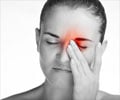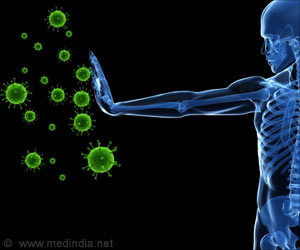The timing of headaches may be related to the body's internal clock, the circadian rhythm, paving the way for potential novel treatments.
- Migraine and cluster headache symptoms are frequently guided by the body's internal clock or circadian rhythm
- Symptoms for 71% of cluster headache patients and 50% of migraine patients followed a circadian rhythm
- This could lead to novel medications that impact the body's circadian rhythms, such as steroids and melatonin
Headaches Might Occur On a Regular Basis
"We discovered that a lot of cluster headache patients had headaches at the same time every day," said study author Mark Joseph Burish, M.D., Ph.D., of the University of Texas Health Science Center at Houston in Texas and a member of the American Academy of Neurology. "I had one patient who was becoming angry because it was taking so long to ask all the questions, and they said, 'If you can just wait 15 minutes, you'll see what my headache looks like,'" Burish remarked. "I was startled by how certain they were about the time of the headaches."Burish believes that a better understanding of how and when headaches occur will lead to new strategies to treat them. Cluster headaches and migraine were both linked to circadian genes. Furthermore, levels of circadian-related hormones such as cortisol and melatonin were altered in patients with these headache problems compared to those who did not have them. Cluster headache patients had higher cortisol and lower melatonin levels, whereas migraine patients had lower melatonin levels.
"Maybe there are other genes or drugs that affect some of these fundamental genes or their circadian rhythms," he speculated. "It is a completely novel treatment that we could employ to aid these people."
These prospective new therapy options could make use of well-known substances, such as steroids and melatonin, which both impact the body's circadian cycles.
Burish explained, "Both of these are existing medications for cluster headaches and migraine." "Steroids, in the correct quantities, can prevent both cluster headaches and migraines, and melatonin can do the same." These are not perfect medicines, but there is promising evidence that changing circadian rhythms can aid patients."
Regulating the Body's Internal Clock
Having a good sleep pattern, and hence healthy circadian rhythms, will not cure your headaches. Having said that, it's still worthwhile to understand how this process works and how a healthy routine might help your body.According to Azizi Seixas, associate director of the Center for Translational Sleep and Circadian Studies at the University of Miami Miller School of Medicine, the process is controlled by the body's internal biological clock and repeats itself every 24 hours.
Setting - and sticking to - a consistent sleep pattern is the greatest advice for folks who feel like their internal clock is out of sync. "Try to sleep and wake up at the same time every day, including on weekends," Seixas suggested.
Another issue to consider is how light can influence circadian cycles. Avoiding bright light in the evening might help the body feel more rested. Bright light in the morning can assist reset the circadian clock and encourage alertness.
"Avoid stimulating activities like watching TV, using electronic gadgets, and exercising before bedtime," Seixas advises. "It also helps to create a calming sleep environment and restrict coffee and alcohol intake, especially in the evening." It is feasible to establish and maintain a good sleep and circadian schedule by following these best practices, which can lead to enhanced general health and well-being."
Source-Medindia
















